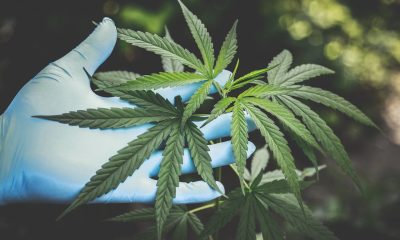Featured
Cepsa Plans to Build a Hydroproduct to Import Hydrogen from Morocco
According to Cepsa’s chief executive, the industry needs a hydrogen price of between $2 and $2.5 and around $3 or $4 for drivers, compared to the $6-$7 it would cost at present. For this reason, he believes that regulatory support should be negotiated in order to accelerate the development of this technology, as he assures that we do not have 20 years as in the case of solar or wind power.

The CEO of Cepsa, Maarten Wetselaar, plans the construction of a hydroproduct that will allow the import of hydrogen from Morocco to the San Roque refinery. At least this is what the executive indicated in the breakfast organized by Nueva Economía in which he explained the strategy of the oil company: to increase the export of traditional products (fuels) to Africa and to use the most sustainable products in Europe.
Wetselaar is confident that electricity prices in Spain will be much lower in the future in order to achieve a competitive hydrogen price. According to his estimation, to achieve these levels, electricity should cost between 20 and 25 euros/MWh, since right now, green hydrogen is very expensive.
According to Cepsa’s chief executive, the industry needs a hydrogen price of between $2 and $2.5 and around $3 or $4 for drivers, compared to the $6-$7 it would cost at present.
For this reason, he believes that regulatory support should be negotiated in order to accelerate the development of this technology, as he assures that we do not have 20 years as in the case of solar or wind power.
If you want to read more about the plans of Cepsa’s CEO to build a hydroproduct in order to import hydrogen from Morocco, download for free our companion app. The business news mobile app Born2Invest keeps its readers up to date with the most important news from around the world. Our app is available for both Android and iOS devices.
Wetselaar also went deeper into his energy scheme for the future
For light vehicles, he considers that the solution will come from electric cars, where he assured that this month he will begin the deployment of recharging points with Endesa.
In the case of the maritime sector, the Cepsa executive explained that they will bet on ammonia and added that they are looking for alliances to develop in this area. For the aeronautical sector, the company indicated that it will use practically all its biofuel production for its supply.
Cepsa’s CEO, Maarten Wetselaar, did not close the door to a future IPO of the company but indicated that the strategic plan needs to be successfully completed before this possibility can be considered because they want to give investors the option of entering a much more sustainable company.
Regarding the exploration and production area, the Cepsa executive explained that investments will be limited to maintaining the positions they currently have in order to continue generating the necessary cash to invest in the ecological transition.
The company will continue to grow in the countries where it has a presence, but he stressed that “I do not believe that Spain or any other country in Europe can succeed in promoting fracking,” said Cepsa’s top executive, who questioned this production system for Spain.
Wetselaar’s position is thus diametrically opposed to that put forward by Repsol’s chairman, Antonio Brufau, at the company’s shareholders’ meeting, in which he highlighted the contradiction of buying gas from fracking and banning it in Europe.
__
(Featured image by Franz26 via Pixabay)
DISCLAIMER: This article was written by a third party contributor and does not reflect the opinion of Born2Invest, its management, staff or its associates. Please review our disclaimer for more information.
This article may include forward-looking statements. These forward-looking statements generally are identified by the words “believe,” “project,” “estimate,” “become,” “plan,” “will,” and similar expressions. These forward-looking statements involve known and unknown risks as well as uncertainties, including those discussed in the following cautionary statements and elsewhere in this article and on this site. Although the Company may believe that its expectations are based on reasonable assumptions, the actual results that the Company may achieve may differ materially from any forward-looking statements, which reflect the opinions of the management of the Company only as of the date hereof. Additionally, please make sure to read these important disclosures.
First published in elEconomista.es, a third-party contributor translated and adapted the article from the original. In case of discrepancy, the original will prevail.
Although we made reasonable efforts to provide accurate translations, some parts may be incorrect. Born2Invest assumes no responsibility for errors, omissions or ambiguities in the translations provided on this website. Any person or entity relying on translated content does so at their own risk. Born2Invest is not responsible for losses caused by such reliance on the accuracy or reliability of translated information. If you wish to report an error or inaccuracy in the translation, we encourage you to contact us.

-

 Impact Investing1 week ago
Impact Investing1 week agoVernazza Autogru Secures €5M Green Loan to Drive Sustainable Innovation in Heavy Transport
-

 Markets4 days ago
Markets4 days agoRice Market Slips Amid USDA Revisions and Quality Concerns
-

 Business2 weeks ago
Business2 weeks agoLegal Process for Dividing Real Estate Inheritance
-

 Fintech13 hours ago
Fintech13 hours agoJPMorgan’s Data Fees Shake Fintech: PayPal Takes a Hit
























